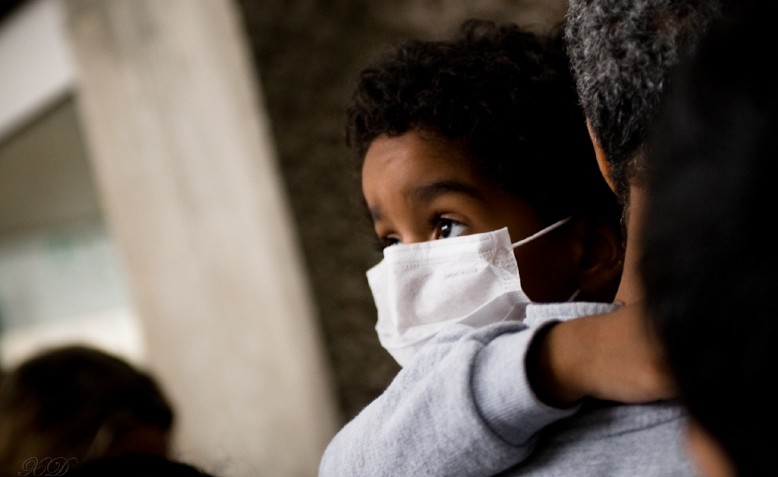 Photo: Xavier Donat / Flickr / CC BY-NC-ND 2.0, license linked at bottom of article
Photo: Xavier Donat / Flickr / CC BY-NC-ND 2.0, license linked at bottom of article
Structural racism is why ethnic minorities are more vulnerable to the virus, and it’s a feature of class society not separate from it, argues Yonas Makoni
‘Structural racism is not a reasonable explanation’ for disproportionate coronavirus transmissions and deaths among BAME people, according to government scientific advisor Dr Raghib Ali. During a brief of a new report by the government’s Race Disparity Unit, he argued that socioeconomic factors, rather than factors such as genetics or discrimination, play an overwhelming role in accounting for inequalities in Covid deaths and transmission.
This was partly in response to earlier suggestions from Public Health England (PHE) that the unequal impact of Covid-19 should be addressed by implementing specific protections for ethnic minorities. According to PHE, experiences of racism may increase these inequalities by discouraging BAMEs from seeking medical help or protections at work.
Dr Ali, on the other hand, claims that disparities can be mostly explained by economic factors that transcend race, such as jobs and housing. As such, measures should be tailored to everyone at risk, rather than only ethnic minorities.
Unsurprisingly, the media twisted this message to give the impression that racism plays no role at all in Covid disparities. Dr Ali, however, maintains that a small part of the disparity remains unexplained by economic factors and that experiences with discrimination may well play a role here. What he is arguing against is the idea that racial inequalities can be fully explained in terms of individual discrimination.
In a way, this is a welcome intervention. Little attention has been paid to the massive economic inequalities in Covid transmission and deaths. The factors that explain much of the racial disparity (occupational risks, dense urban housing and cramped living spaces etc.) can ultimately be traced back to class, not race.
On the other hand, Ali is wrong to deny the racist character of these economic inequalities. As argued by the IPPR, the fact that ethnic minorities are so disproportionately poor, working class and economically marginalised is structural racism. It is no coincidence that economic inequality and race are linked in this way. Racial disparities are fostered by the capitalist system to divide and exploit working class people. Capitalism and racism are intimately connected; when Ali reduces racial disparities to the economic factors underlying them, he neglects this crucial role of structural racism.
This was the issue with both PHE and Dr Ali’s conclusions. In both, racism was seen only as an issue of individual discrimination. There are, however, several problems with shifting the accent to discrimination in this way. Not only does it ignore the similar problems faced by non-ethnic minority workers, but it also leads to the idea that the problems faced by ethnic minorities can be fully explained by the lack of communication, education and representation. This obscures the need for structural change.
This has become a familiar theme. Some liberal politicians, corporations and media have recently embraced the language of the anti-racist movement. But their proposed solutions to structural racism remain as stale and unimaginative as ever, mostly ignoring questions of economic justice. PHE’s calls for ‘culturally sensitive’ messaging and risk assessments for BAME workers exemplify this.
The Racial Disparity Unit report is right to recommend risk assessments for all workers, BAME or not. But this is, of course, not enough. The disparities in Covid impact are an effect of class society, and BAME workers are so disproportionately affected because of their position in this society. Any solution must therefore take into account that capitalism depends on racism and vice versa. Ultimately, the only way to protect ethnic minorities is by uniting them with all workers against the system that depends on their sacrifice.
Join Revolution! May Day weekender in London
The world is changing fast. From tariffs and trade wars to the continuing genocide in Gaza to Starmer’s austerity 2.0.
Revolution! on Saturday 3 – Sunday 4 May brings together leading activists and authors to discuss the key questions of the moment and chart a strategy for the left.

